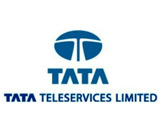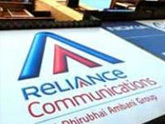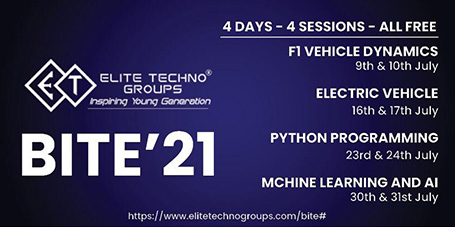 Tata TeleservicesBSE -13.23 % (TTSL), the telecom unit of Tata Sons, is preparing an exit plan for most of its 5,000-odd employees, which includes a notice of three to six months, severance packages for those willing to leave earlier, a voluntary retirement scheme (VRS) for elders, while transferring only a small part of its employees to other group companies.
Company executives and industry insiders said the debt-laden telecom company, which will shut its operations soon, had last month asked circle heads to leave by March 31, 2018.
Tata TeleservicesBSE -13.23 % (TTSL), the telecom unit of Tata Sons, is preparing an exit plan for most of its 5,000-odd employees, which includes a notice of three to six months, severance packages for those willing to leave earlier, a voluntary retirement scheme (VRS) for elders, while transferring only a small part of its employees to other group companies.
Company executives and industry insiders said the debt-laden telecom company, which will shut its operations soon, had last month asked circle heads to leave by March 31, 2018.
"The Tata Group has always taken care of its people, but very few will get absorbed in other group companies. It is unfair to saddle other Tata companies with employees of TTSL," said a senior official, who did not wish to be identified. The transfer may only happen if there’s a niche set of skills needed in other firms that may match with those of employees in the telecom unit. There may be voluntary retirement schemes for the senior employees — above a particular age — that will be rolled out in the next few months, said a senior official in the Tata Group. For majority of the employees, the telecom unit of the Tata Sons will offer a notice of at least three-six months and those who want to leave can take the severance packages.
There were 5,101 employees on its rolls as on March 31, 2017, as per the latest annual report. Search firms which are dipping into the telecom sector for profiles said they have received resumes from circle heads who want to exit the telco, and have been given a time frame to do so.
"Circles heads of Tata Teleservices whose resumes we are placing have been given time till March 31 and were told of this in September. If they leave now, they will be given the salary for the remaining months of this financial year," said Kris Lakshmikanth, chairman of search firm Headhunters India. A circle head's salary can be up to Rs 1 crore.
Tata Teleservices did not respond to ET’s queries till the time of going to press. According to an ET report published last Saturday, the Tata Group informed the government that it plans to shut its wireless business, and will start the process in a month.
The brass of TTSL and representatives from the promoter group met Department of Telecommunications (DoT) officials and discussed ways of surrendering or selling their existing spectrum holdings, some of which have been allocated administratively by the government and some have been bought through spectrum sales over the past few years.
This will be one of the first big Tata units to be shut in the group’s 149-year-old history. Tata Teleservices, which was set up in 1996 with landline operations, had a cheqered history. It launched CDMA operations in 2002, then adopted GSM in 2008 and received Rs 14,000 crore of investment from NTT Docomo, which eventually decided to exit the loss-making joint venture in 2014, citing weak financial performances.
The group had earlier tried forming alliances with other companies but didn’t fructify mainly due to the telco’s debt burden of about Rs 30,000 crore. (Source: Economic Times)


 Trai will come out with a separate regulation on the international termination charges, currently pegged at 53 paise per minute, the official said.
Trai will come out with a separate regulation on the international termination charges, currently pegged at 53 paise per minute, the official said. Idea Cellular today said it achieved the highest 4G upload speed in September citing data compiled by TRAI’s My Speed App.
Idea Cellular topped the chart in terms of average 4G upload speed for September at 6.307 mbps, the private telecom player said in a statement reeling off TRAI data.
It reported a high average download speed of 8.74 mbps (megabits per second) during the month and has been consistently recording highest upload speed in the last six months, the operator added.
Idea Cellular today said it achieved the highest 4G upload speed in September citing data compiled by TRAI’s My Speed App.
Idea Cellular topped the chart in terms of average 4G upload speed for September at 6.307 mbps, the private telecom player said in a statement reeling off TRAI data.
It reported a high average download speed of 8.74 mbps (megabits per second) during the month and has been consistently recording highest upload speed in the last six months, the operator added. Not just fiscal policy support but a structural one is needed to ease the massive debt burden which is "slowly strangulating" the telecom sector, opined experts.
Industry observers stated that at stake is not only the telcos ability to employ manpower and resources for introduction of next-gen communication technology, but severe consequences for lenders and nearly 150,000 jobs. Among the solutions prescribed by experts are setting up of a Telecom Finance Corporation and giving the industry priority sector lending (PSL) status. If PSL status is allowed, then borrowing, overall cash-flow and debt management will become easier for all telecommunications service providers (TSPs), some experts told.
Not just fiscal policy support but a structural one is needed to ease the massive debt burden which is "slowly strangulating" the telecom sector, opined experts.
Industry observers stated that at stake is not only the telcos ability to employ manpower and resources for introduction of next-gen communication technology, but severe consequences for lenders and nearly 150,000 jobs. Among the solutions prescribed by experts are setting up of a Telecom Finance Corporation and giving the industry priority sector lending (PSL) status. If PSL status is allowed, then borrowing, overall cash-flow and debt management will become easier for all telecommunications service providers (TSPs), some experts told. 





